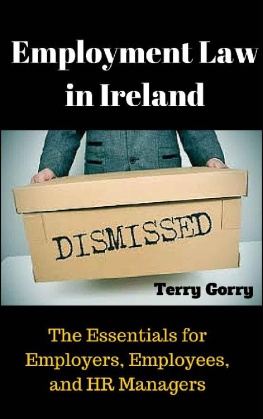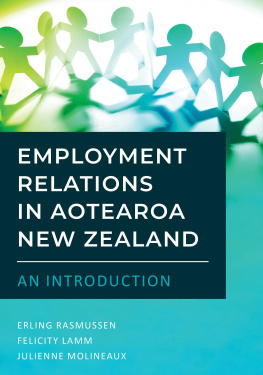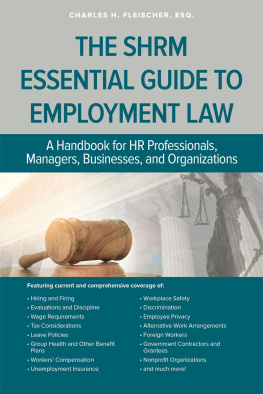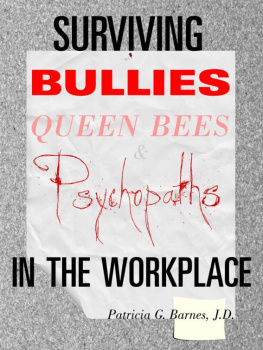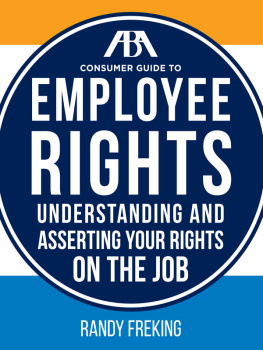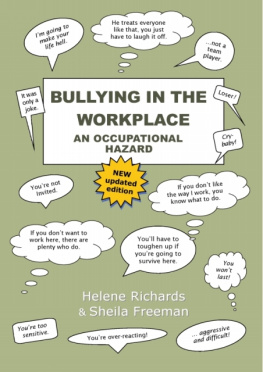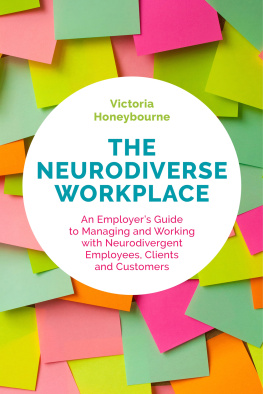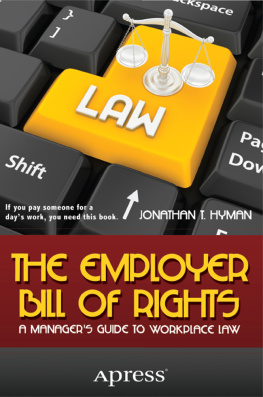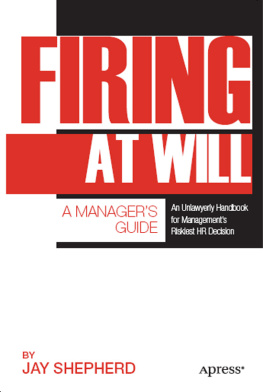Although the author and publisher have made every effort to ensure that the information in this book was correct at press time, the author and publisher do not assume and hereby disclaim any liability to any party for any loss, damage, or disruption caused by errors or omissions, whether such errors or omissions result from negligence, accident, or any other cause.
The material contained in this book is provided for general information purposes only and does not constitute legal or other professional advice. Whilst every care has been taken in the preparation of the content of all pages in this book, specific legal advice should always be sought on the application of the law in any particular situation.
We strongly recommend employing a legal professional to interpret and advice on ANY aspect of the law.
I wrote this book because I know many employers and employees in Ireland are confused about employment law. And I could not see too many books in the marketplace to help them.
This is neither a text book nor a work with any academic aspirations. It is written to be a straightforward, working guide to help employers avoid needless and costly claims by employees.
And to help employees vindicate their rights in the workplace where they may be unlucky enough to work for an employer who takes shortcuts and fails to respect their rights as employees.
I have been an employer in Ireland since 1986. And if this book saves you as an employer from an expensive and avoidable claim it will have been well worth the price.
Or if it clarifies for you as an employee that, yes, you are being taken advantage of and you can do something about it, then I will be satisfied.
Thanks for buying it and placing your trust in me. I would love to hear your feedback about this book. Where it fails, what you like about it, how it can be improved.
And if you find it useful I would really appreciate it if you left a review on Amazon, because it gives great encouragement.
Chapter 1-The Employment Contract
The employment contract is the basis of the employment relationship between employer and employee. However, it is the source of much misunderstanding and strife between employers and employees.
Even though legislation has come to play a huge role in the employment relationship, the legal relationship between employer and employee is rooted in the law of contact. There is no requirement in law that the employment contract be in writing.
However, there is an obligation on the employer under the Terms of Employment (Information) act, 1994 to give employees a written statement of certain terms of employment (see below).
Who is an Employee in Irish Law?
It is vitally important for both employers and employees to firstly understand who is considered to be an employee in Irish law versus the worker being considered to be an independent contractor.
Clearly an independent contractor will not enjoy the benefits of Irish employment legislation.
Contract of service or contract for services?
The vital difference is that an employee works under a contract of service while an independent contractor supplies his/her labour and/or services under a contract for services .
The status of the worker, in a dispute situation, will be determined by legal interpretation and some basic rules.
It is worth noting that regardless of the label put on the relationship by the parties the Courts (and tribunals) will look at the facts of the situation and decide what type of contract exists. In making this decision the decision maker will be influenced by:
-Whether there is written evidence of terms
-Whether there is control over the worker as to what he does, when he does it, why, and how the worker works
-Whether the employee provides his own labour/skill to the employer and cannot assign his duties to another.
The three key areas therefore which a Court or tribunal will consider will be the aspect of personal service, the degree of control over the worker, and any written terms of the contract.
A Deemed Employee
A deemed employee situation will arise where a person is working for an employer through another agency or body.
That person will be a deemed employee of the person for whom they are doing the work. This situation will commonly arise where employment agencies place people in a work environment.
The employment agency must be one as defined by the Employment Agency Act, 1971 but this act defines an employment agency very widely. It is important to note though that the notion of a deemed employee only applies in relation to the application of specific statutes which provide for protection for a deemed employee.
However it can be a potentially costly situation where a business does not know of their potential liability to a deemed employee until a problem occurs and the deemed employer can be held responsible for a dismissal over which he had no control or knowledge.(See also chapter 27 on Temporary Agency Workers).
Prior to Contract
Before entering into a contract of employment there are three areas that an employer needs to consider carefully.
These areas can be broadly categorized as follows:
1. Advertising the position
2. Interviewing for the job
3. Conditions precedent.
Advertising the job needs to be approached carefully by the employer as it is easy to fall foul of employment equality legislation.
In addition, the wording of the advertisement can be held to form part of the subsequent contract of employment.
Interviewing for the job
Employers also need to be careful not to ask questions which fall foul of the Employment Equality Acts, 1998-2004. Asking questions that could be considered discriminatory on the grounds of age, marital status, sex, and the other grounds referred to in employment equality legislation can leave the employer open to a successful claim for discriminatory treatment.
Keeping note of the interview is recommended as what is said at interview (by both parties) can be held to form part of the subsequent contract.
Conditions precedent
The employer may make a job offer conditional on certain conditions being fulfilled, depending on the position.
These conditions may cover Garda vetting, clean driving licence, health to do the job, suitable references, registration with professional bodies, and others-this will depend very much on the nature of the work and position.
The areas of references and medical examinations can cause problems and the key principle always for the employer is that he has the employees consent to take up references and medical reports/evidence.
The Data Protection Commissioner has held that the employer needs written consent to take up references. However, there is no general requirement in law that an employer furnishes a reference.

